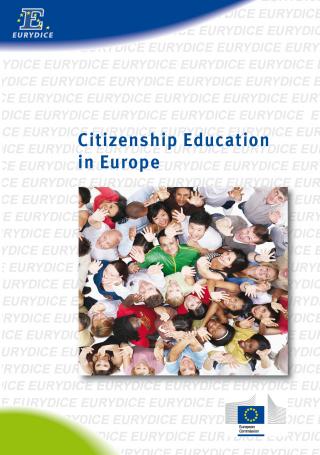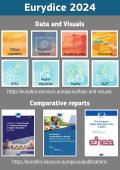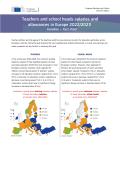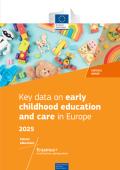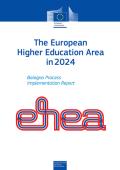Citizenship Education in Europe
Citizenship Education in Europe
Full version BG DE EN ES FR HR IT LV PL PT RO SK SL TR
Highlights BG CS DE EN ES FI FR HR HU IS IT LT LV PL RO SL SV TR
Appendix on Main Reforms: ![]()
Description:
Citizenship education in Europe shows that all European countries now have introduced central regulations to promote student participation in school governance. Encouraging citizens, particularly young people, to actively engage in social and political life has recently become a growing political priority both at national and European level. Because education is viewed as a principal means to promote active citizenship, the report aims to capture how policies and measures relating to citizenship education have evolved over recent years in European countries. To this end, the report provides an overview of the state of play on five main topics: 1) Curriculum aims and organisation; 2) student and parent participation in schools; 3) school culture and student participation in society; 4) assessment and evaluation; 5) and support for teachers and school heads.
The report provides information on 31 of the Eurydice Network countries (EU Member States, Iceland, Norway, Croatia and Türkiye). The reference year is 2010/11.
European Commission Press release
Contents:
Chapter 1: The Citizenship Education Curriculum: Approaches, taught Time and Content
Chapter 2: Student and Parent Participation in School Governance
Chapter 3: School Culture and Student Participation in Society
Chapter 4: Assessment, Evaluation and Monitoring
Chapter 5: Preparation and Support for Teachers and School Heads


